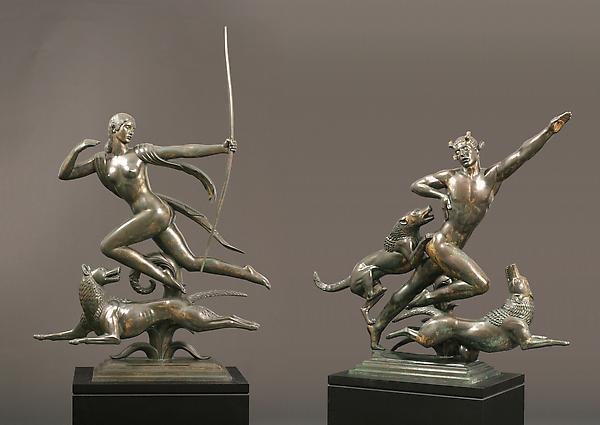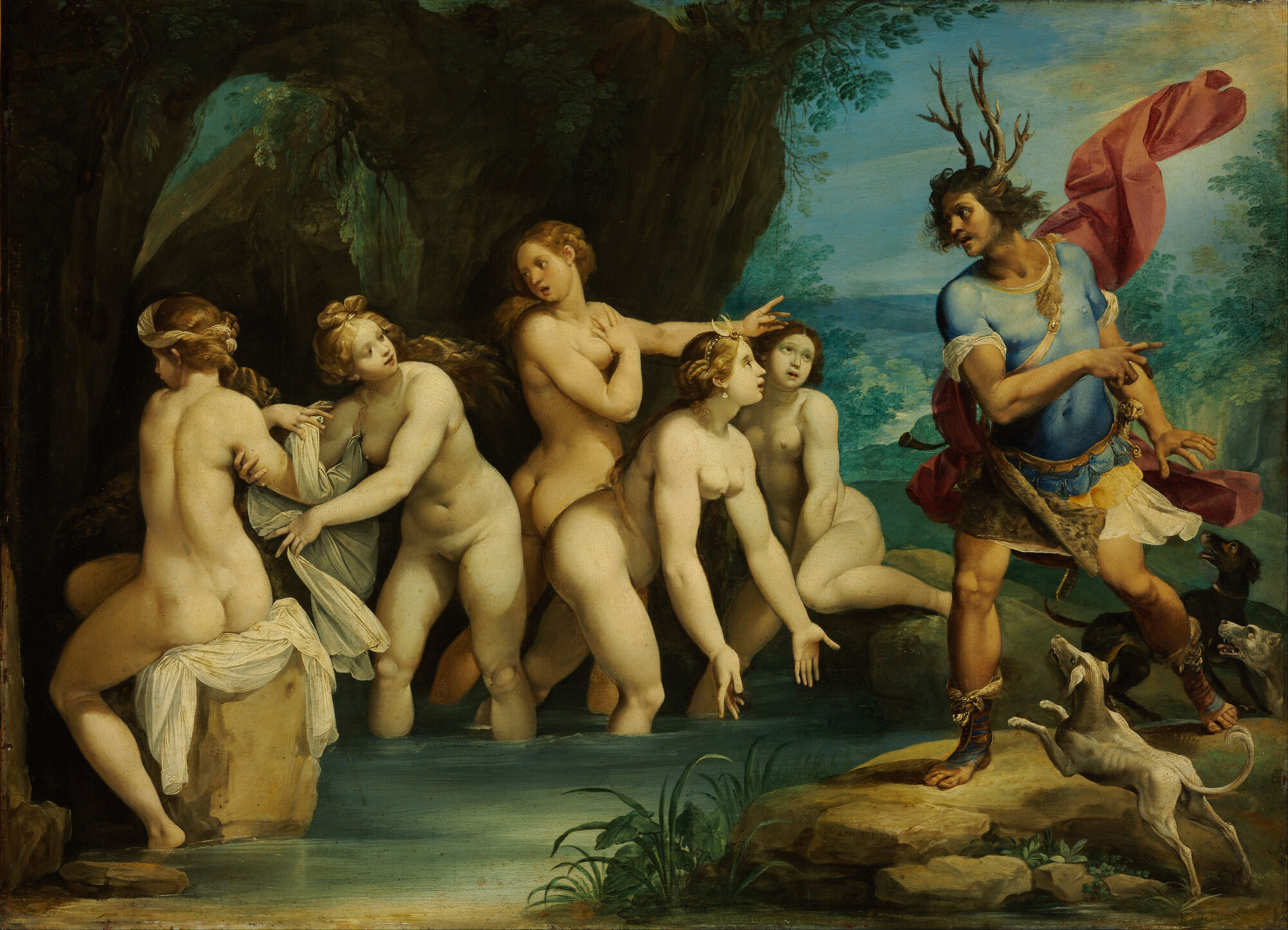 ‘Diana and Actaeon’ this was the allusion that struck me when I heard the
news of Britain’s vote in the recently conducted EU referendum, popularly known
as Brexit.
‘Diana and Actaeon’ this was the allusion that struck me when I heard the
news of Britain’s vote in the recently conducted EU referendum, popularly known
as Brexit.
The myth of Diana and Actaeon can be found within
the Roman poet Ovid’s epic narrative, Metamorphoses.
The tale recounts the fate of a young hunter named Actaeon and his encounter
with the chaste Diana, goddess of the hunt. In the myth, Actaeon unwittingly
stumbles upon Diana bathing nude in a spring with help from her escort of
nymphs. The nymphs scream in surprise and attempt
to cover Diana, who, in a fit of embarrassed fury, splashes water upon Actaeon.
The hunter is transformed into a deer and, robbed of his ability to speak,
promptly flees in fear. It is not long, however, before his own hounds track
him down and, failing to recognize their master, tear him apart.
 | ||||
| Diana and Actaeon by Paul Manship, 1925. |
The myth can be interpreted in multiple ways. In
one interpretation, Actaeon could represent David Cameron. Before the 2015
elections in Britain, Mr. Cameron had pledged to hold the referendum on EU
membership if his party, the Tories, won a majority. The pledge to hold a
referendum was a way of mollifying members of his own party and others, who
were unhappy about the UK’s membership in the EU. In making this promise,
Cameron disturbed a delicate scene very much like that of the goddess bathing.
Given the fact that despite authorizing the referendum Cameron had in fact been
campaigning to stay within the EU makes him a figure very much like the
unwitting Actaeon, who really had no intention of intruding on Diana’s bath.
Regardless of his intentions, however, Cameron has faced an Actaeon-like fate,
having now promised
to step down from the post of Prime Minister. Only time will tell if this
exit marks the end of his political career, but for now, the allusion holds.
 Another way to read the myth in the current
context is to see Actaeon as the English constituent of Great Britain, who will
now be set upon by the hounds that the English have held on an imperial leash
for so long. Like so many political entities, Britain is a cobbling together of
various entities. Britain was constituted by the imperial ambitions of the
English, who first added Wales to their imperium and subsequently Scotland and
Ireland. There is a long history of resistance to English imperial rule that
has resulted in the assertion of regional identities, as in the case of the
Welsh, and wars of independence, as in the case of the Irish. More recently,
the Scots made an unsuccessful bid for freedom through a referendum to leave
the UK. However, in the wake of Brexit, which shows that the Scots overwhelmingly
chose to stay in the European Union, and it was the English who chose to leave
it, there is every likelihood that the Scots will demand another referendum. This
time round, the English may not be so lucky and find their imperial union being
torn apart. England may regret that it trespassed upon a site that it should
have left alone in the first place.
Another way to read the myth in the current
context is to see Actaeon as the English constituent of Great Britain, who will
now be set upon by the hounds that the English have held on an imperial leash
for so long. Like so many political entities, Britain is a cobbling together of
various entities. Britain was constituted by the imperial ambitions of the
English, who first added Wales to their imperium and subsequently Scotland and
Ireland. There is a long history of resistance to English imperial rule that
has resulted in the assertion of regional identities, as in the case of the
Welsh, and wars of independence, as in the case of the Irish. More recently,
the Scots made an unsuccessful bid for freedom through a referendum to leave
the UK. However, in the wake of Brexit, which shows that the Scots overwhelmingly
chose to stay in the European Union, and it was the English who chose to leave
it, there is every likelihood that the Scots will demand another referendum. This
time round, the English may not be so lucky and find their imperial union being
torn apart. England may regret that it trespassed upon a site that it should
have left alone in the first place. |
| Diana and Actaeon by Giuseppe Cesari, 1603-1606. |
While the leadership of the EU suggests that all
is under control, one wonders whether this is mere bravado and if Britain has
unleashed not merely Actaeon’s hounds but also the dogs of war. Europe was very
similarly tied up in a set of international treaties and riven with ethnic
tensions on the eve of the Second World War. What was also at stake at the time
of this war, and the first, was the future of various empires. In the First
World War, it was the future of the Ottoman Empire and the Austro-Hungarian Empire.
In the second, it was that of the Japanese and German Empires. There are some
who argue that the EU is
in fact a non-coercive imperial formation. What is currently at stake,
therefore, is the future of another empire. Given the larger state of the
world, which exists in a state of armed conflict and the intervention of
third-party states, and the fact that a number of treaties that have kept
Europe stable during the past fifty years are now coming undone, one wonders if
this is what the beginning of the end of the world order as we know it is going
to look like.
(A version of this post was first published in The Goan Everyday on 26 June 2016)






